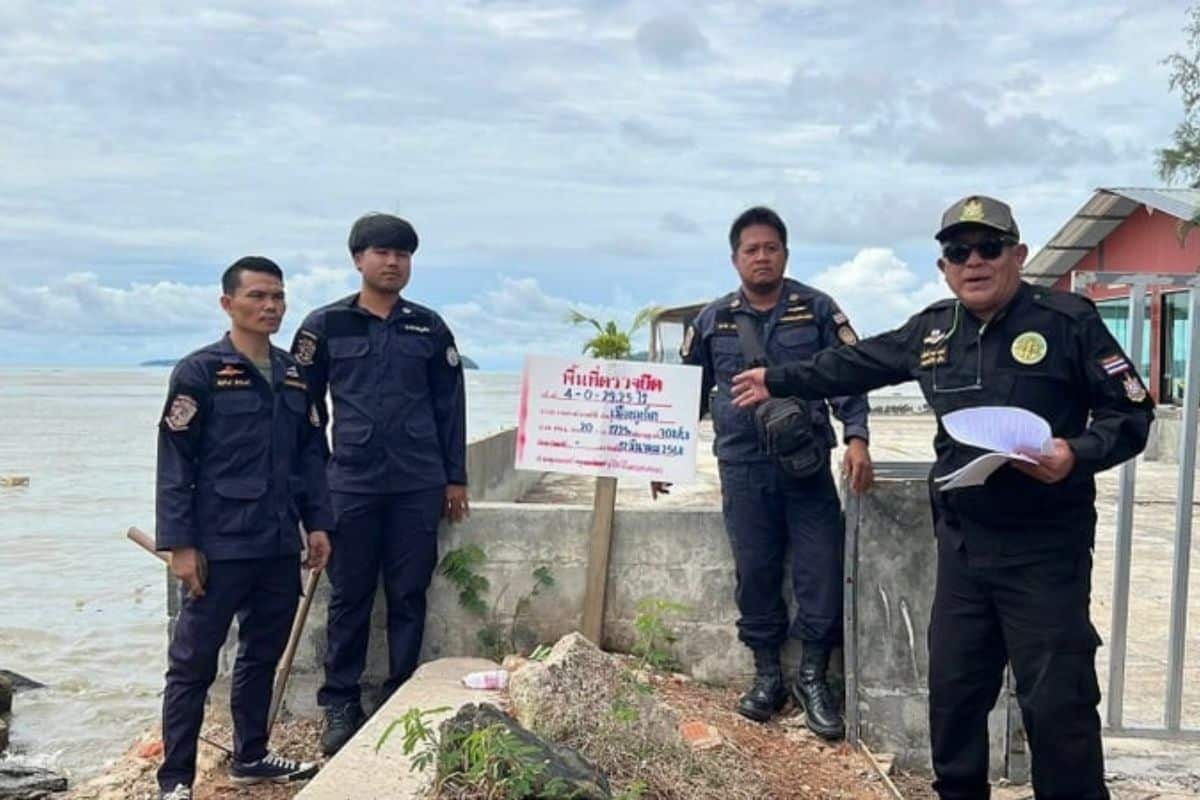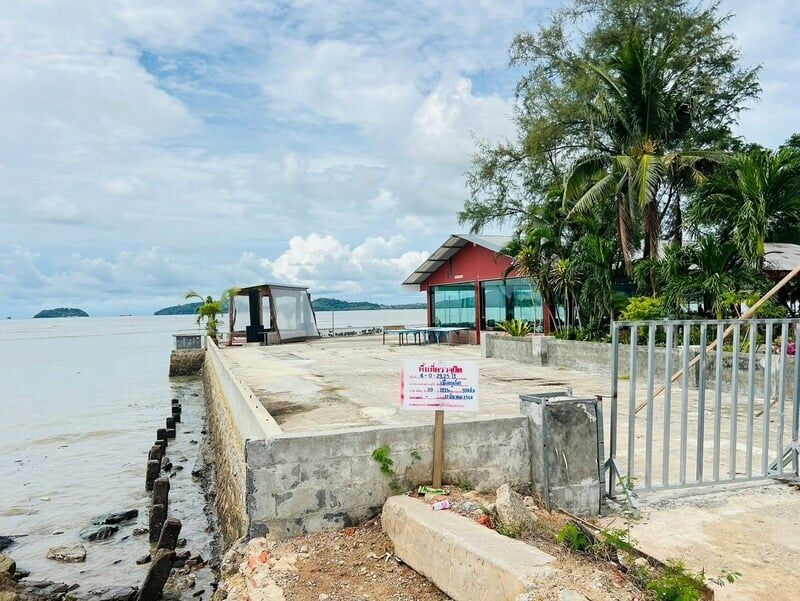Phuket seafront restaurant busted for land grab

A popular Phuket restaurant with stunning sea views is under fire after police swooped in and seized over 4 rai of land, citing illegal forest encroachment and unlicensed construction. The high-profile raid has rocked the east side of Phuket Town, exposing serious environmental violations hidden behind a picturesque dining experience.
Yesterday, April 24, officials from the Phuket Provincial Forestry Office, led by Sorasak Rananan, Director of the Phuket Forestry Centre, joined forces with Phuket Marine Chief Natchapong Pranit, Natural Resources and Environment officers, and Phuket City Police to post seizure notices at Khon Thai 2 Restaurant, located at the end of Soi Senaniwet overlooking Phuket Bay.
The notices were nailed to the gated entrance and far boundary of the property, which sits near the Office of the Attorney General. The restaurant, however, fought back with its own signage claiming legal rights to the land under Title Deed No. 15632, warning off trespassers but still inviting customers in for dinner.


Sorasak explained that the operation followed a site inspection on March 12, prompted by a public complaint.
Officials discovered the restaurant was illegally occupying forest reserve land and had erected 17 unapproved structures. A formal complaint has since been lodged with Phuket City Police, and legal proceedings are now underway.

Adding to the controversy, Natchapong revealed that the Phuket Marine Office had been alerted about potential encroachment on a public waterway. An inspection confirmed the restaurant had also constructed illegal barriers along the shoreline, including a massive 950-square-metre, 140-metre-long sea wall, allegedly to combat coastal erosion.
Officers issued a demolition order after the restaurant failed to provide construction permits. The owner now has 90 days to comply with the order or file an appeal, reported The Phuket News.
The case has ignited debate over land rights, environmental protection, and the unchecked expansion of commercial operations in protected areas. Criminal complaints have also been filed, further escalating the legal pressure on the restaurant’s owners.
Latest Thailand News
Follow The Thaiger on Google News:


























